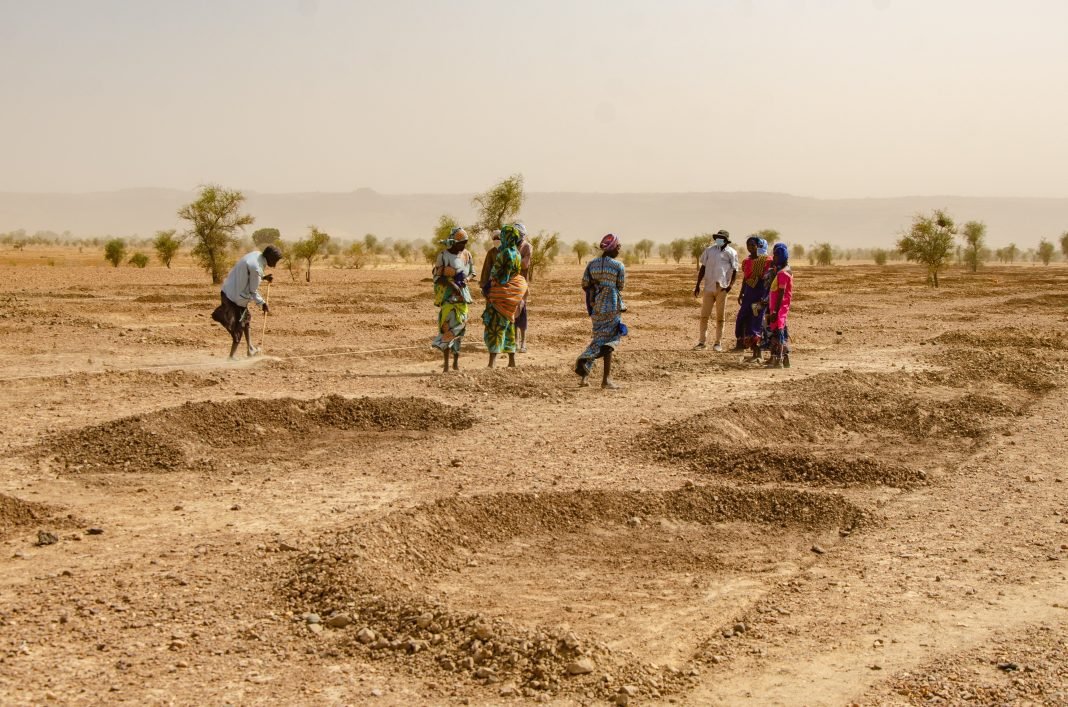Nouakchott, 22 August 2022 (TDI): Communities in Mauritania can cultivate now despite an increasingly harsh environment due to half-moon farming and other forms of Climate Action.
With assistance from the World Food Programme (WFP), more than 1,400 hectares have already been restored.
From this ⬅️➡️ to that: Half-moon🌙 farming and other forms of #ClimateAction enable communities in #Mauritania to cultivate in the face of an increasingly severe climate.
Over 1,400 hectares have been rehabilitated so far with support from WFP. pic.twitter.com/4y52grvFpZ
— World Food Programme (@WFP) August 21, 2022
Also read: USAID provides $11 Million to Mauritania
In Mauritania, where droughts have long been a problem, recent years have seen unpredictable and irregular rainfall.
Moreover, Mauritania is particularly susceptible to prolonged droughts and decreasing rainfall because 90% of the country is in the Sahara Desert. These natural calamities have the power to destroy life for civilians.
Currently, almost 17% of people in the country are living in extreme poverty, and shockingly, one in four children are living in absolute poverty.
Since so many Mauritians depend on natural resources for a living, desertification has had a detrimental effect on the country’s economic development. Climate Change is further exacerbating communities that are already at risk of poverty.
WFP coping with calamities
According to WFP statistics, just under one-quarter of the population lives in poverty, and malnutrition remains widespread in Mauritania.
Additionally, during the lean season’s crucial peaks, acute and severe malnutrition respectively strike 11.6 and 2.3 percent of children under five.
Moreover, ninety percent of agricultural production is based on subsistence farming. Therefore, people are exposed to the consequences of calamities like droughts, floods, and locust invasions.
Eventually, they are made worse by increasing soil erosion and desertification due to climate change.
Major droughts that occurred repeatedly undermined communities, destroyed ecosystems, and forced many people to adjust by consuming less food of lower quality and selling livestock.
The WFP supports communities that lack access to sufficient food in preparing for, coping with, and recovering from climate shocks and pressures.
Furthermore, WFP addresses the causes of vulnerability in the region while working with the Government of Mauritania.
It aims towards reducing food insecurity to under five percent, eradicating severe food insecurity, and reducing global acute malnutrition to under 2 percent by 2030.








